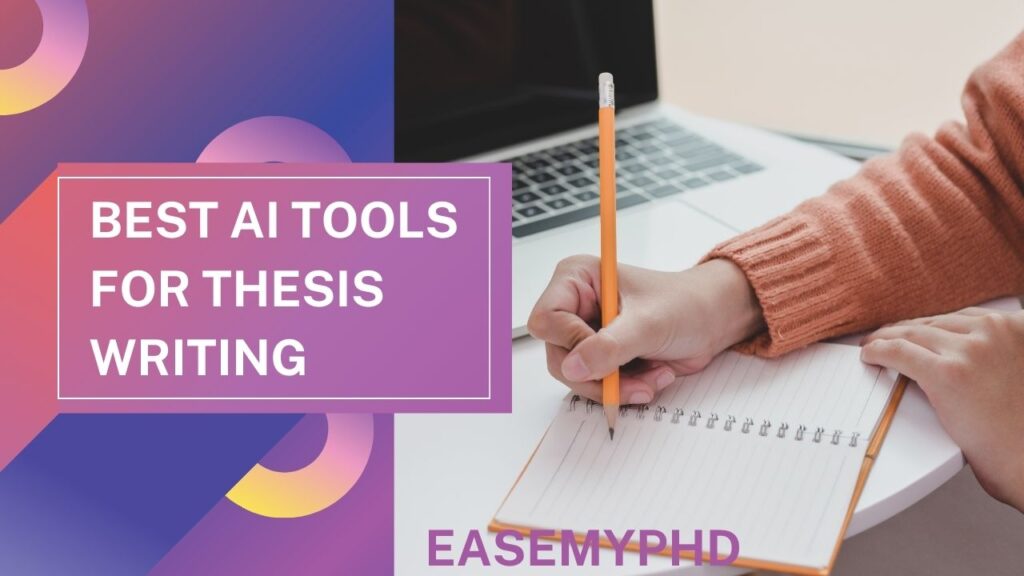Welcome to the future of academic writing! In today’s digital age, technological advancements have revolutionized the way we approach scholarly research and writing. With the rapid evolution of artificial intelligence (AI) tools, scholars and researchers now have access to powerful resources that can significantly enhance their productivity and elevate the quality of their work.
In this blog post, we’ll explore the best AI tools available for PhD thesis writing and paper crafting. From intelligent writing assistants to advanced editing software, these tools are designed to streamline your writing process, provide valuable insights, and ultimately help you produce exceptional academic work.
Join us as we delve into the world of AI-powered writing tools and discover how they can revolutionize your PhD journey. Whether you’re crafting a compelling thesis proposal or refining your research papers, these innovative technologies are here to empower you every step of the way. Let’s embark on this transformative writing journey together!
AI tools for scientific writing and research papers
In the continuously evolving domain of scholarly exploration, artificial intelligence mechanisms are progressively seizing the spotlight.
Introducing Manuscript Enchanter, Jenny.AI, and Wisio – these pioneering frameworks are poised to transform the methodology we employ in scientific composition.
Collectively, these AI mechanisms are spearheading a novel epoch of effective, well-ordered scientific scripting.
- Manuscript Enchanter – https://paperwizard.ai/
- Jenny.AI https://jenni.ai/
- Paper Pal – https://paperpal.com/
- Writefull – https://www.writefull.com/
- Trinka – https://www.trinka.ai/
- Wisio – https://www.wisio.app
AI tools for literature search and research mapping
AI tools for literature search and research mapping utilize advanced algorithms and machine learning techniques to sift through extensive databases, academic journals, and online repositories in search of relevant literature and scholarly works. By harnessing the power of AI, researchers can streamline the process of identifying key papers, authors, and concepts, thereby accelerating the pace of discovery and innovation in their respective fields.
AI research tools, such as Concensus, provide substantial advantages in scientific research. Here, we highlight the diverse range of AI-powered tools available for academic research.
These tools efficiently summarize PDF documents, extract crucial information, conduct AI-driven searches, and much more. Some are even pioneering the integration of personal databases, enabling users to pose questions directly to their own collection of files.
For instance, platforms like scite delve deeply into citation analysis, while AI models like ChatGPT introduce fresh perspectives to the discourse.
The outcome? What was once a laborious research process is now significantly streamlined, affording researchers more time for in-depth exploration and comprehension. Bid farewell to traditional hurdles and welcome your new AI research assistant!
- Elicit – https://elicit.org
- Scispace- AI Chat for scientific PDFs | SciSpace (typeset.io)
- Supersymmetry- https://www.supersymmetry.ai
- Semantic Scholar- https://www.semanticscholar.org
- Connected Papers – https://www.connectedpapers.com/
- Research rabbit – https://www.researchrabbit.ai/
- Laser AI – https://laser.ai/
- Litmaps – https://www.litmaps.com
- Inciteful – https://inciteful.xyz/
- Scite – https://scite.ai/
- System – https://www.system.com
- Bit AI – https://bit.ai/
- Consensus – https://consensus.app/
- Exper AI – https://www.experai.com/
- Iris AI – https://iris.ai/
- Research Buddy – https://researchbuddy.app/
- Mirror Think – https://mirrorthink.ai
Furthermore, these AI-driven tools go beyond traditional keyword-based searches, offering sophisticated features such as semantic analysis, natural language processing, and citation network analysis. This enables users to uncover hidden relationships, detect emerging trends, and gain a deeper understanding of the scholarly landscape.
In this era of information abundance, AI tools for literature search and research mapping serve as invaluable allies for researchers, empowering them to navigate the complexities of academic literature with ease and efficiency. As we delve deeper into the capabilities of these cutting-edge technologies, the possibilities for advancing knowledge and driving scientific progress are limitless.

